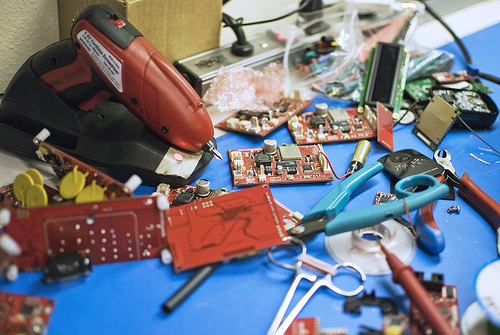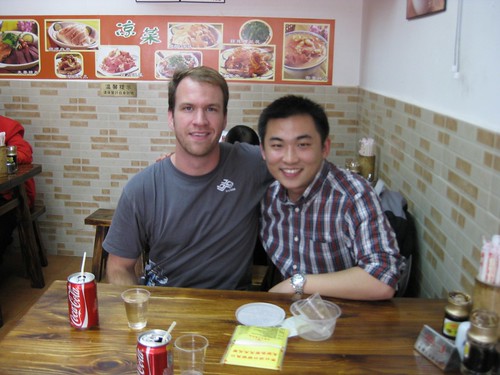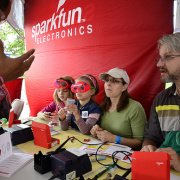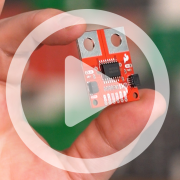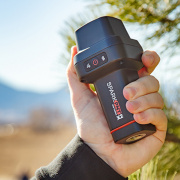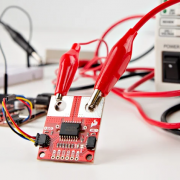Fast and Malleable
Why SparkFun will never be able to compete with BMW.
SparkFun is not like BMW. We will never be the company to produce the luxury market version of breakout boards and development tools. I believe the only way SparkFun will survive this quickly changing world is to be malleable. We have to be ready to change.
SparkFun's audience is often a first time user and we want them to have the best experience with the documentation and resources like tutorials, pictures, example code and anything else we can provide to make them successful. By constantly revising our products, we often find ways to make it more likely for our users to succeed. The firmware will get better, we will figure out better power protection, and we'll make the end product easier to use. This causes lots of stress on our production line (there's lots of bribes from engineering when we forget to breakout the right test points), but over the past 9 years of building stuff, we've figured out ways to change quickly. Thanks to the huge efforts of a team of people we can change any part of a design (PCB layout, schematic, BOM, firmware, test procedure, test jig, kit instructions, product description, product images, you name it) in days, not months.
Phillip Torrone recently posted a great article on problems and counterfeits in the Open Source Hardware (OSHW) world. All sorts of great discussions ensued! Jan Malasek from Pololu made some great points about the appropriate time and place for OSHW and Paul Stoffregen raised some valid concerns that OSHW may encourage lower quality products. I'm here to state two things about OSHW as it works for SparkFun.
1) OSHW makes us a better company. Releasing the design files for a product means you have enabled all your customers and a few competitors as well.
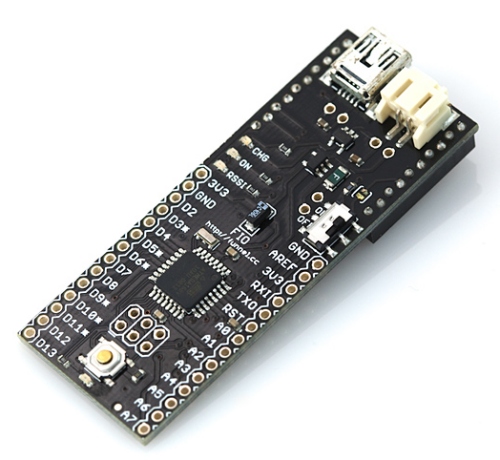
We sold the original Fio for about 12 weeks before Seeed Studio sold a better version.
Eric Pan runs Seeed Studio and does a fine job of it. They did everything right (kept the license intact, gave attribution where required) and even improved the design a bit (they used easier to find parts).
Now imagine what it was like in the SparkFun offices the first time we saw our product (our baby) built by someone else? It was not easy. But guess what came of it? We now know we need to innovate, and do so constantly. If we can't be the best at something, we'd better get the heck out of the way. Intellectual property allows for some protection, albeit at a legal expense. On top of that, IP holders can be tempted to sit on their laurels and in this day and age, that can be the kiss of death. We use open source hardware as a way to stay sharp.
2) OSHW makes for better products. We believe it is better to iterate on a design and be and transparent and forthcoming as possible. You will find some SparkFun products with silkscreen errors and even green wires. We have even shipped kits without the PCB (!!!). Yep, we screwed that one up badly but we contacted the customers as soon as we found out and sent out the missing PCBs. All lessons cannot be learned in a vacuum. At SparkFun, we find it's better to give our customers the most options possible, listen, then incorporate their feedback into new product revisions, which is very much in line with the sprit of open source.
Some could argue that shipping an unfinished product is not the correct way to do business. I have had to train myself and the people around me that a project is never done, there is always ways to make it better. This is the basis of engineering. We believe we should get the product to do one thing well and then set it free and allow others to hack on it. What we thought was an important feature may turn out to be needless.
It may not appeal to everything, but is this fast release cycle a good thing or bad thing for Open Source Hardware? I believe this is the core of why OSHW is fantastic. We have learned from our problems and we share them so that others do not make our same mistakes. In a very clear way, we educate and enable our customers and our competition equally. Similarly, we will stand on the shoulders of folks who have had great ideas (Leah Buechley, Brian Schmalz, Bill Premerlani, and countless others) and made powerful tools (Arduino, Saleae, mbed, the list goes on). What will separate companies from one another in the future is not their designs, it will be their service, their quality, their price and their ability to produce meaningful products. This is the nature of the game we play and it is my job to make SparkFun the best at responding to incremental change that allows for better end products and happier users.
